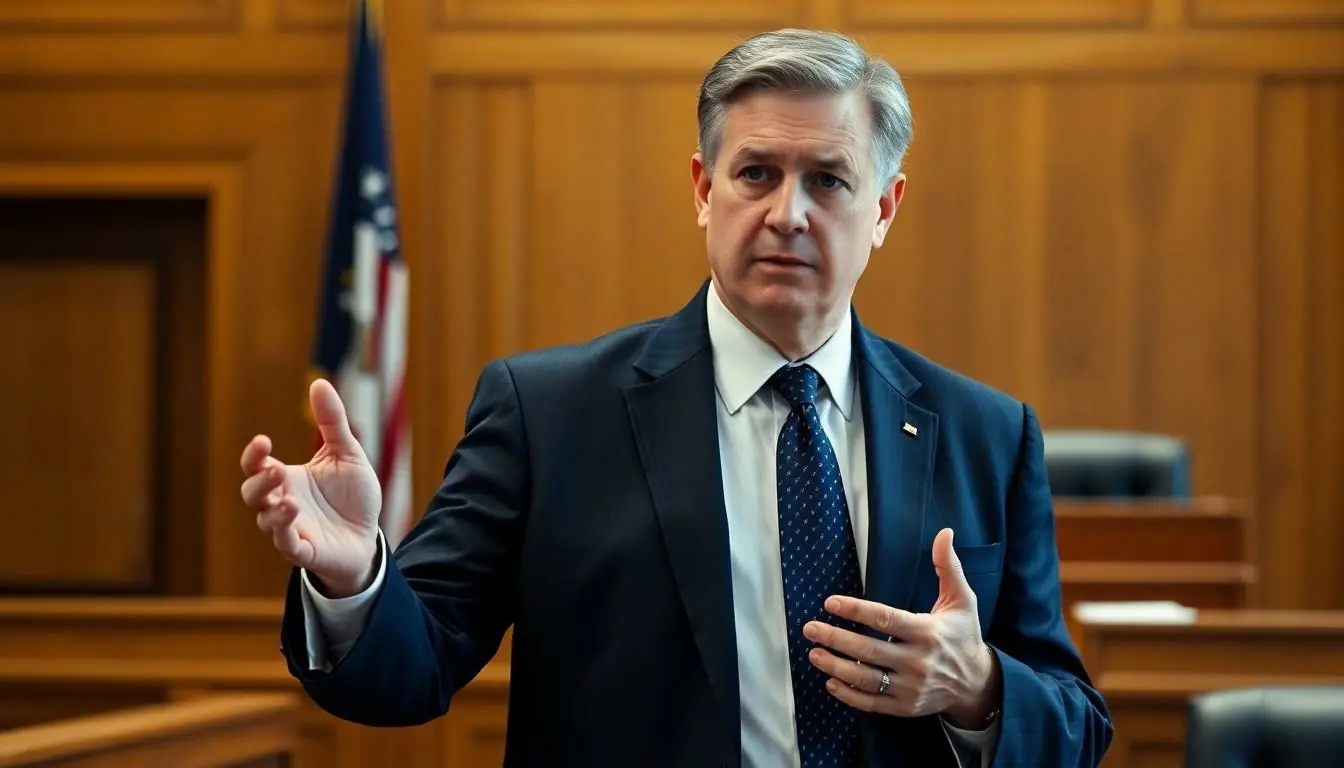In a world where technology and law collide, one lawyer dared to tread where few have gone before—into the realm of AI. When he decided to consult ChatGPT for legal advice, he probably thought he was embracing the future. Little did he know, this digital sidekick would lead him on a rollercoaster ride of courtroom drama and ethical dilemmas.
Curious about the outcome? Spoiler alert: it didn’t end with a gavel thumping in his favor. Instead, it sparked debates that left legal experts scratching their heads and tech enthusiasts chuckling. Join the journey as we unravel the tale of the lawyer who took a leap into the digital unknown and discovered that not all advice comes with a legal disclaimer.
Table of Contents
ToggleOverview of the Case
The lawyer’s decision to seek legal advice from ChatGPT marked a significant moment in the legal profession’s relationship with technology. Initially, he believed this AI tool could streamline processes and offer innovative insights. Courtroom challenges soon emerged, however. Ethical concerns began to surface as the lawyer faced questions about the reliability of AI-generated information.
When the case came to trial, he found himself in a precarious position. Critics pointed out that he had relied heavily on ChatGPT’s output without verifying its accuracy. Notably, the court ruled against him, citing negligence for not consulting a licensed professional for legal matters. This verdict drew attention from legal experts nationwide.
Throughout the episode, many observed the broader implications of the case for the legal industry. Some experts emphasized the importance of human oversight when integrating AI tools into legal practice. Conversations erupted among tech enthusiasts, who found the situation amusing yet alarming. AI’s limitations in providing accurate legal advice became evident.
Following the verdict, discussions regarding AI ethics in law gained traction. Additional scrutiny arose concerning how lawyers balance technology use with professional responsibilities. Ultimately, the lawyer’s journey serves as a cautionary tale about the unpredictable nature of relying on AI for legal counsel. Legal communities continue to analyze the ramifications of this case, addressing ethical usage as AI technology evolves.
Background on ChatGPT

ChatGPT represents a significant advancement in artificial intelligence, particularly in natural language processing. This AI model can generate human-like text based on context and prompts.
Development and Purpose
Researchers designed ChatGPT to assist users with various tasks, from answering questions to creating content. It leverages large datasets to learn patterns in language and provide relevant responses. Businesses and professionals often utilize ChatGPT for efficiency and productivity. In legal contexts, lawyers might see it as a tool to streamline research and drafting. However, the tool’s effectiveness relies heavily on the quality of input and contextual understanding.
Legal Implications
Legal professionals face challenges when integrating AI tools like ChatGPT into their practice. Relying on AI-generated information raises questions about liability and accountability. Courts may scrutinize legal advice based on AI output for accuracy and reliability. If an attorney uses information from ChatGPT without validation, they risk negligence claims. Ethical standards demand human oversight, advocating for a balanced approach to AI use in legal scenarios. Overall, the tension between innovation and responsibility shapes ongoing discussions within the legal community.
The Lawyer’s Actions
The lawyer’s reliance on ChatGPT triggered a series of significant events.
Specific Incidents
During the trial, the attorney presented ChatGPT’s generated arguments as part of his defense. Observers noted inaccuracies in the AI’s output that undermined his case. Critics pointed out that the lawyer failed to fact-check the information, leading to crucial oversights. As the proceedings progressed, judges and opposing counsel expressed concern over the validity of ChatGPT’s contributions. Ultimately, this lack of verification contributed to the unfavorable ruling against him, emphasizing the risks associated with unverified AI-generated information.
Ethical Considerations
Ethics played a critical role in the lawyer’s predicament. Using AI tools like ChatGPT raises important questions about accountability in legal practice. Legal professionals must ensure their advice is rooted in verified information and human expertise. A heavy reliance on technology can threaten the integrity of legal counsel. Professional standards dictate that lawyers remain responsible for the information they present in court. The incident sparked widespread debate in legal circles regarding the necessity of human oversight in technology-assisted decision-making.
Consequences Faced
The lawyer’s reliance on ChatGPT led to significant consequences, affecting his professional reputation and future practice.
Immediate Repercussions
Critics responded swiftly to the lawyer’s actions, questioning his judgment in using AI-generated arguments without verifying their accuracy. The trial showcased inconsistencies in the AI’s output, which weakened his defense. Judges openly expressed concerns about the legitimacy of the information presented, resulting in an unfavorable ruling against him. The court emphasized negligence for relying solely on ChatGPT’s output instead of consulting human experts. Negative media coverage intensified scrutiny, with legal analysts debating the lawyer’s reliance on AI in a profession governed by precise standards.
Long-Term Effects
Repercussions extended beyond the trial, impacting the lawyer’s career trajectory. Colleagues grew wary of the ethical implications surrounding AI use in legal practice, leading to a shift in workplace policies. Many legal firms began emphasizing the necessity for human oversight when employing AI tools. This incident triggered broader discussions about liability and accountability, prompting further exploration of AI integration within the legal sector. Ultimately, the event highlighted the need for updated guidelines on AI’s role, ensuring that legal practitioners maintain their responsibility toward accurate and reliable legal counsel.
Industry Reactions
The legal community reacted strongly to the lawyer’s use of ChatGPT, prompting a mix of concern and curiosity. Many legal professionals emphasized the necessity of verifying information, arguing reliance on AI generated content can lead to significant risks. Law schools began incorporating discussions on AI ethics into their curricula, educating future lawyers about the limitations of technology. Experts believe the incident serves as a crucial learning moment for the profession, highlighting the importance of human oversight.
Public perception shifted dramatically in the wake of the trial. Critics questioned the competence of a lawyer who depended on AI for legal arguments, fostering skepticism about technology’s role in the legal field. Many expressed worry over the accuracy of AI outputs, fearing clients could receive unreliable advice. Conversations surrounding the ethical implications of AI grew louder, as communities sought to understand the balance between innovation and accountability within the legal profession.
The lawyer’s experience with ChatGPT serves as a pivotal moment in the legal landscape. It emphasizes the critical need for human oversight when integrating AI into legal practices. As the legal community grapples with the implications of this case, discussions about ethics and accountability are more vital than ever.
The incident has prompted law schools to reassess their curricula, ensuring future lawyers are equipped to navigate the complexities of AI. This cautionary tale highlights that while technology can enhance legal processes, it cannot replace the fundamental responsibility lawyers have to provide accurate and reliable counsel. The balance between innovation and ethical practice will shape the future of law in an increasingly digital world.





